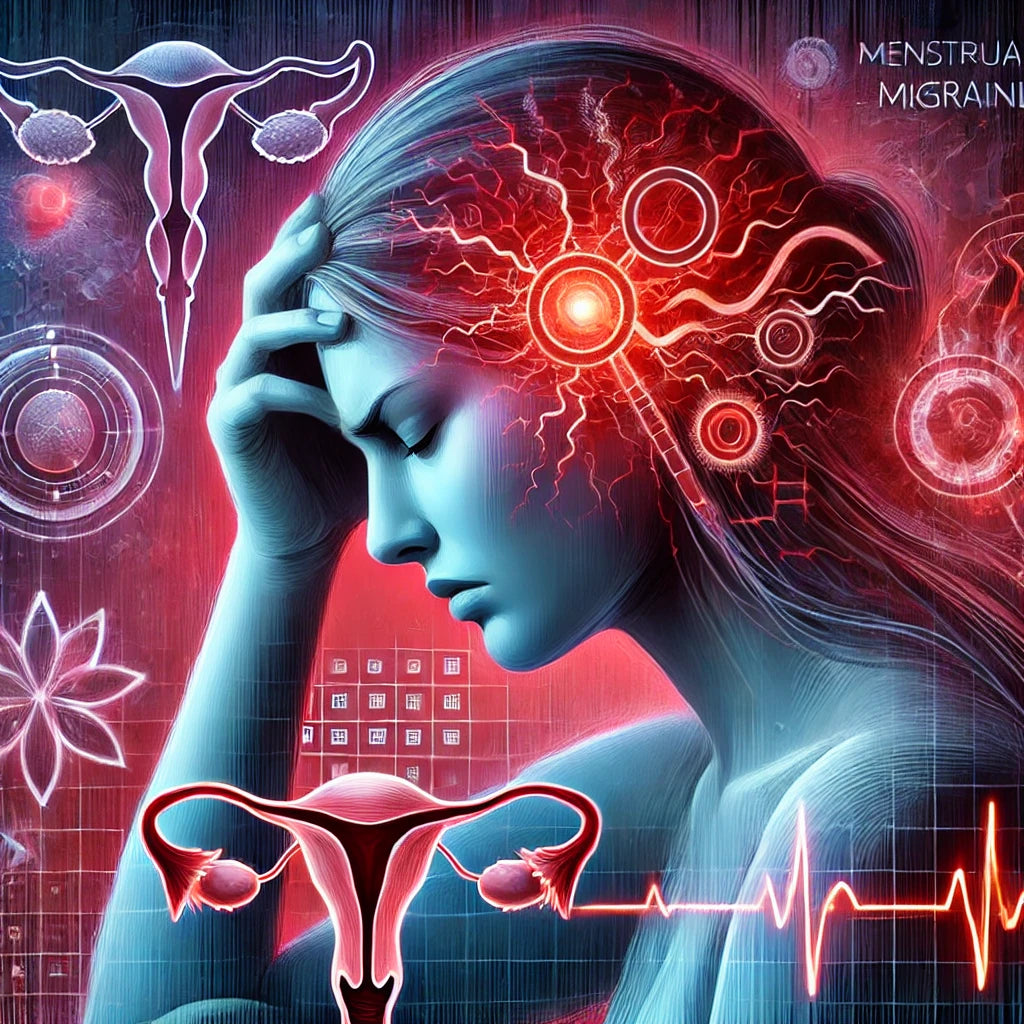
Understanding Menstrual Migraines: Causes, Symptoms, and Tips for Relief
For many women, menstruation brings a host of physical and emotional symptoms, and for some, this includes intense migraines. Menstrual migraines are not only painful but can interfere significantly with daily life. In this post, we’ll explore what menstrual migraines are, why they occur, and offer some tips for managing and alleviating these difficult headaches.
What Are Menstrual Migraines?
Menstrual migraines are a type of headache that occurs around the time of menstruation, often right before or during a woman’s period. They are distinct from regular migraines in their timing and often in their intensity. While many women experience general headaches or discomfort as part of PMS, menstrual migraines are typically more severe, lasting for hours or even days, and may occur monthly in sync with the menstrual cycle.
What Causes Menstrual Migraines?
The exact cause of menstrual migraines isn’t fully understood, but they’re thought to be primarily related to the rapid changes in hormone levels, particularly estrogen, which occurs in the days leading up to menstruation. Here are some main factors:
-
Hormonal Fluctuations: Just before a period, estrogen levels drop significantly. For some women, this sharp change can trigger migraines. Estrogen influences chemicals in the brain that affect pain sensation, so fluctuations can make some people more sensitive to pain.
-
Chemical Sensitivity: Some women may be more sensitive to shifts in brain chemicals like serotonin, which also fluctuate during menstruation and can play a role in migraines.
-
Other Triggers: Stress, lack of sleep, dehydration, and certain foods (like chocolate, caffeine, or alcohol) can also exacerbate menstrual migraines.
Symptoms of Menstrual Migraines
A menstrual migraine shares many symptoms with other types of migraines but can sometimes feel more intense or prolonged. Common symptoms include:
- Throbbing or pulsating pain, usually on one side of the head
- Sensitivity to light, sound, or smells
- Nausea and sometimes vomiting
- Fatigue and dizziness
Because they’re linked to the menstrual cycle, these migraines can be particularly challenging, especially for those who experience them regularly.
Tips to Help Alleviate Menstrual Migraines
While menstrual migraines can be difficult to eliminate entirely, there are effective strategies for managing and reducing their severity:
-
Track Your Cycle and Plan Ahead
- Know Your Triggers: By tracking your cycle, you can anticipate when migraines are likely to strike. Use a journal or an app to record migraine days and note any patterns.
- Preventative Medications: If you’re prone to menstrual migraines, consult with a healthcare provider about taking preventative medication, which might include NSAIDs, triptans, or even hormonal treatments around your period.
-
Manage Stress Levels
- Practice Relaxation Techniques: Yoga, meditation, and breathing exercises can help lower stress levels, which may, in turn, reduce the intensity or frequency of migraines.
- Consider Lifestyle Adjustments: Make sure you’re getting enough rest, eating balanced meals, and avoiding known migraine triggers like caffeine and alcohol.
-
Use Heat or Cold Therapy
- Hot or Cold Compresses: Cold compresses can numb the pain, while some people find that heat, such as a warm shower or heating pad, helps relieve tightness around the head and neck.
-
Try Dietary Adjustments
- Avoid Trigger Foods: Common migraine-triggering foods include aged cheese, caffeine, chocolate, and alcohol. Limiting or avoiding these, particularly in the days leading up to your period, may help reduce the likelihood of a migraine.
- Magnesium Supplements: Some studies suggest that magnesium supplements may reduce the frequency and intensity of menstrual migraines. Talk to a healthcare provider before starting any supplement regimen.
-
Stay Hydrated
- Dehydration can exacerbate headaches, so aim to drink plenty of water throughout the day. Keep a water bottle with you, and try setting reminders if you often forget to drink water.
-
Over-the-Counter Pain Relief and Prescription Medications
- Pain Relievers: Over-the-counter pain relief, can be effective if taken at the first sign of a migraine. For more severe cases, a healthcare provider might prescribe triptans, which specifically target migraines.
- Hormone Therapy: In cases where menstrual migraines are especially debilitating, hormone therapy might help. Birth control pills, patches, or hormonal IUDs can sometimes stabilize estrogen levels and prevent the sharp drop that triggers migraines. It’s important to consult a healthcare provider, as hormone therapy is not suitable for everyone.
-
Alternative Therapies
- Acupuncture: Some people find relief from migraines through acupuncture, which is thought to reduce pain by stimulating various points on the body.
- Essential Oils: Peppermint or lavender oil applied to the temples or diffused in the air may help ease tension and migraine pain. Be cautious with application and dilution, as essential oils can be quite potent.
When to Seek Medical Help
While many people can manage menstrual migraines with lifestyle changes and over-the-counter medication, some may require more specialized treatment. If your migraines are severely affecting your quality of life, causing frequent missed days at work or school, or do not respond to regular treatments, it’s time to consult a healthcare provider. In some cases, migraines can indicate other underlying health conditions, so a professional evaluation can ensure you’re on the best treatment plan.


